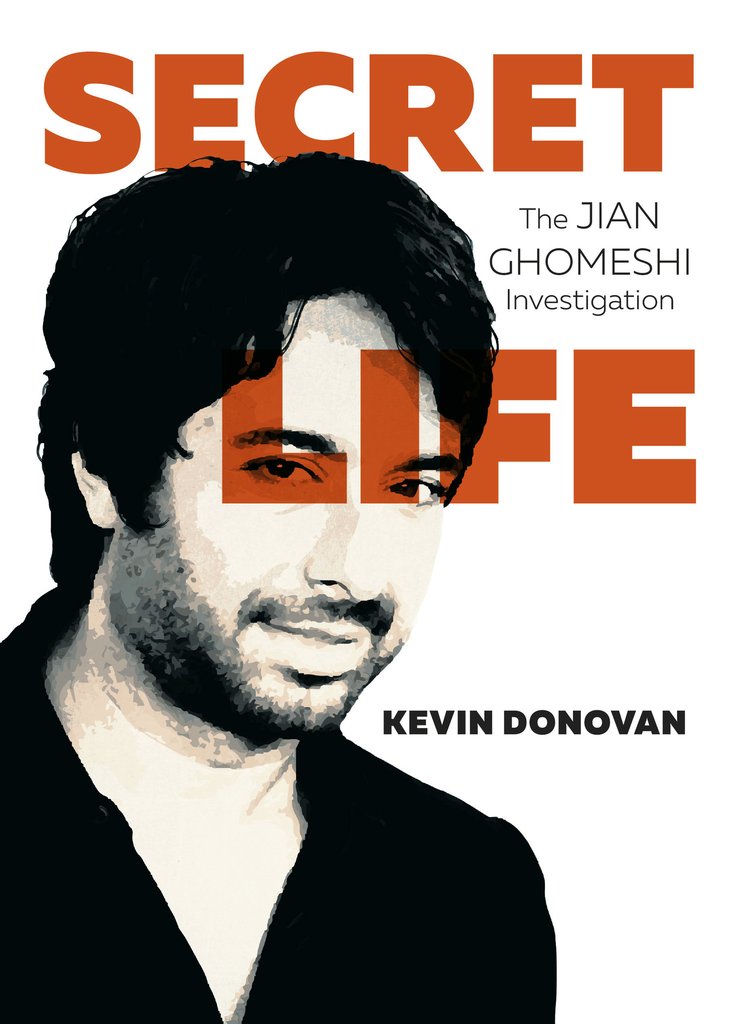What really happened between Jian Ghomeshi and the women? What made him snap and write that explosive Facebook post? Did he deserve to be acquitted? Why did they stay?
Kevin Donovan’s look inside what began as rumours, whispers at dinner parties and warnings about bad dates does what it intends. Secret Life: The Jian Ghomeshi Investigation takes readers one step further into the material that is already familiar if you were following his trial earlier this year.
Donovan, lead investigative reporter for the Toronto Star, gives readers an interesting and comprehensive behind-the-scenes look at how a scandal of such unprecedented scale came to be. The investigations started quietly in 2014 after journalist Jesse Brown, famous for his Canadaland work, pursued allegations brought to his attention by a young woman named Carly and roped Donovan into the firestorm.
The book opens with conversations with Carly, who met Ghomeshi (then-CBC radio host of Q) at a book signing where he asked for her number. After engaging in what Ghomeshi has simply called “rough sex,” she explains how confused and intimidated she was by what happened and the superstar status that surrounded Ghomeshi. She continued to talk to him. She sent him photos of herself in a bikini.She remembers feeling scared and on edge. The reader, and of course Donovan himself, are left wondering why someone in such a horrific situation would stay for, in Carly’s case, over a year.
What Donovan highlights in Secret Life is not only the importance of asking these key questions, but coming to understand the answers as well. This comprehensive look at the Ghomeshi investigation showcases diligent in-depth journalism. It also showcases how that kind of journalism seems to ask the better questions and finds different ways to examine evidence.
In many respects, Donovan delivers what the audience is ordering. Much of the information is familiar, but he also includes new material that is deliciously intriguing. Anecdotes from the women themselves, including one about Jian’s therapeutic teddy bears, Big Ears Teddy – “It was always in the room when they had sex. [Carly] said Ghomeshi would turn it around, saying, ‘This is too inappropriate for Big Ears to see.’” – and private meetings with lawyers as they debated the credibility of sources and legal implications they could face as a result. People are shown to be constantly backing down from doing anything to put an axe in the Ghomeshi name or image, especially when their paycheck is attached to its success.
In one scene, Donovan finds himself unexpectedly seated at a dinner table next to Ghomeshi during the investigations. In another, Ghomeshi “paced around the room and moved his arms wildly as he described sexual scenarios he had been involved in with various women … Those of his advisors watching Ghomeshi noticed that he seemed to become aroused as he described how rough sex is done: his voice rose, the timbre of his voice changed, and he provided more detail than needed.”
While these kinds of glimpses into the world of investigative journalism are new to readers, the rehashing of allegation after allegation is all simply a reworking of headlines over the last year or so. Also, unless you didn’t already know Ghomeshi is an entitled, anxiety-riddled man who thrives on compliments and constant assurance from others and has a dad-bod complex, we don’t learn too much more about Ghomeshi himself. To be fair, Donovan never claims to have any intention of going there, but isn’t that what all of us nosey readers really wanted?
Despite it perhaps being too soon for publication, Donovan’s book hits the nail on the head in two ways: Giving those nosey readers who also have a hankering for behind-the-scenes looks exactly that, complete with juicier details and uncomfortable observations.
It also continues a national conversation about sexual assault and how those cases are handled both in and out of court. Donovan takes readers inside to show how careful everyone on each side of the story has to be – legally or media wise – in order to deliver fair stories and fair trials that serve justice, even if justice is not always served on the finest plate we can think of.
The issue of consent, the cult of celebrity and the politics of power: these are all questions we started off and are left with even after reading Donovan’s comprehensive report. These, possibly, are questions we will always have. Secret Life suggests we never cease to ask them.
Ghomeshi, a man once celebrated for starting conversations, now leads a legendary hypocrisy. His real legacy did not come off the coattails of the airwaves, but from behind closed doors.
The man once more scared of being “tried in the court of public opinion” is now unemployed and said to be in therapy. His life, even after this book, sits secretively behind closed doors, barred or not.

